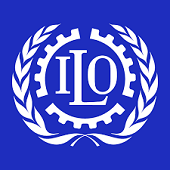
Project Title: PROSPECTS: Partnership for improving Prospects for host communities and forcibly displaced persons
Organization: International Labour Organization (ILO)
Background and Rational
According to the United Nations High Commissioner for Refugees (UNHCR), there were 70.8 million forcibly displaced persons (FDPs) worldwide as a result of persecution, conflict, violence or human rights violations at the end of 2018. Of these, 25.9 million were refugees and 41.3 million were internally displaced persons (IDPs). One-third of the global refugee population is hosted by least-developed countries (LDCs), such as Sudan, Ethiopia, Uganda and less than three per cent of refugees returned to their country of origin.
PROSPECTS is a four-year innovative inter-agency partnership between the Government of Netherlands, the World Bank, IFC, ILO, UNHCR and UNICEF. The goal of the partnership will be to strengthen the socio-economic enabling environments of communities that host different forcibly displaced populations (IDPs and refugees) to ensure sustainable decent work, training and education opportunities, as the policy, legislative and regulatory frameworks facilitate this integration process. ILO is implementing a range of interventions under this partnership.
Cooperatives play a major self-help role in rural areas; particularly where private businesses hesitate to establish, and public authorities do not provide basic services. They are instrumental in providing opportunities for productive employment, as well as offering health care, education, potable water, improved sanitation, roads, and market access, while giving a stronger voice to rural populations. Agricultural cooperatives provide strong economic benefits to farmers, through sharing and pooling of resources, improved access to markets, higher returns for their products, and strengthened bargaining position.[1]
In Kenya cooperatives are recognized to be a major contributor to national development and are found in almost all sectors of the economy. There are over 22,000 registered cooperative societies in Kenya representing over 10 million members. ILO has conducted an assessment of cooperatives in Turkana and Garissa Counties to establish challenges faced by cooperatives and other similar member-based organizations in the areas, and how to strengthen the institutions. The assessments also recommend on ways of enabling refugees and host community members to take full advantage of the cooperative business model to participate in economic progress of host communities by fostering opportunities for decent work and social inclusion.
Under PROSPECTS partnership, the ILO is planning to build the capacity of the cooperative service providers and equip them with ILO cooperative establishment and management tools with the view of supporting forcibly displaced persons (FDPs) and host communities who are interested in establishing or joining a cooperative. The planned capacity building training will establish network of skilled cooperative service provider, equip them with the ILO approach and methods. The capacity building training planned will also expect to ensure institutionalize ILO cooperative development tools and methods in the target FDPs hosting regions. The ILO cooperative development tools of Think.COOP, Start.COOP, and My.COOP can best fit the current context and enable cooperatives and other social and solidarity economy (SSE) organizations to become more competitive and sustainable in the marketplace.
—-
Box 1. Defining Social and solidarity economy (SSE) & cooperatives
A cooperative is defined by the International Co-operative Alliance and the International Labour Organization as “an autonomous association of persons united voluntarily to meet their common economic, social, and cultural needs and aspirations through a jointly-owned and democratically-controlled enterprise.”
The General Conference of the International Labour Organization at its 100th session, 2022 adopted the following definition of the SSE:
“The SSE encompasses enterprises, organizations and other entities that are engaged in economic, social, and environmental activities to serve the collective and/or general interest, which are based on the principles of voluntary cooperation and mutual aid, democratic and/or participatory governance, autonomy and independence, and the primacy of people and social purpose over capital in the distribution and use of surpluses and/or profits as well as assets. SSE entities aspire to long-term viability and sustainability, and to the transition from the informal to the formal economy and operate in all sectors of the economy. They put into practice a set of values which are intrinsic to their functioning and consistent with care for people and planet, equality and fairness, interdependence, self-governance, transparency and accountability, and the attainment of decent work and livelihoods. According to national circumstances, the SSE includes cooperatives, associations, mutual societies, foundations, social enterprises, self-help groups and other entities operating in accordance with the values and principles of the SSE.”
Source*: The ILO Promotion of Cooperatives Recommendation, 2002* (No. 193) and ILO: Resolution concerning decent work and the social and solidarity economy (2022)
—–
ILO global studies show that cooperatives have been tested and are good means to ensure sustainable socio-economic integration of FDP’s. Cooperatives are uniquely positioned to address the needs of both displaced persons and host populations because of their ability to combine both practical assistance as well as psycho-social support, through collective action. ILO Global research also shows that cooperatives are engaging with host and displaced populations in many ways[1]:
- Host community cooperatives provide goods and/or services to displaced persons;
- Host community cooperatives recruit displaced persons as workers;
- Host community cooperatives include displaced persons as members;
- Host communities provide capacity building and training for displaced persons to set up their own cooperatives;
- Displaced persons form cooperatives provide goods and/or services for themselves or their host community;
- Displaced persons and host communities organized into cooperatives by an international organization provide services for themselves or the host community;
Returning displaced persons rebuild their own communities through cooperatives
[1] ILO: Cooperatives for People-Centred Rural Development, Rural Policy Brief (2011)
Objective of the assignment
The objective of the training of trainers is to build the capacities of regional and local cooperative service providers, including but not limited to key partners and local administration officers from the Turkana and Garissa counties. The training will use the ILO cooperative tools: Think.COOP (training module for those interested in establishing or joining a cooperative) Start.COOP (a training tool for those interested in starting a cooperative in a participatory manner) and My.COOP (a training package and programme on the management of agricultural cooperatives).
Scope of the assignment
The training will take place tentatively in September 2022.[1].
The trainer will:
- Prepare training materials: including developing a methodological note that outlines the overall training process including:
- Review and adapt training materials, in coordination with the PROSPECTS project staff in Kenya and in close collaboration with relevant local cooperative support organizations.
- Prepare presentations and handouts.
- Prepare final agenda of the training of trainers (ToT).
- Prepare pre and post assessment knowledge survey and training evaluation
- Support in selecting the participants for the training. This will include providing comments on the criteria that will be used to select participants as well as an entry form that will capture among others, information on the participant’s experience and knowledge of cooperative development approaches and tools.
- The project will promote the ToT and encourage trainers from local cooperatives support institutions who meet the criteria to apply for the training, and also target trainers from local cooperative support organizations.
- Provide the necessary information regarding the training requirements and logistics at least four weeks prior to the training session
- Conduct 10 day TOT training workshops in Kenya on ILO Think.coop, Start.coop and My.COOP for a maximum of 25 participants from Garissa and Turkana Counties, and the cooperative department. There will be provision for 2 days for preparations and 2 days for reporting. Total contract days will be 14 days. Submit a draft report 1 weeks after completion of workshop; and a final report incorporating feedback from ILO no longer than 3 weeks after completion of the workshop. The report will include evaluation of the training process, recommendations, participants action plans to deliver/cascade the training to target cooperatives and other social and solidarity economy (SSE) organizations (including agreed criteria for selecting organizations to be supported).
- Follow up remote support/coaching to program, which will include monthly/ bimonthly follow up calls with participants for the first 2 months after the training to review progress, questions on the process, assist trainers in conducting their first training activities especially on coaching, and any other concerns. Additional individual discussions with trainers could also be made available to review content and process as well as reflections on learning
[1] Place, venue and date will be tentative subject to the current COVID-19 outbreak and movement restrictions
Expected outcome of the training
It is expected that participants will become resource persons to rollout the capacity building training to selected cooperative members, boards, and managers. By the end of the training, participants will be asked to draft an action plan on the future training they will be organizing jointly with the project.
Management of the assignment
The trainer will work under the overall authority of Director ILO Country Office Dar es Salaam covering Tanzania, Kenya, Uganda, Rwanda, and Burundi. The consultant will work under the direct supervision of the ILO-PROSPECTS Programme Manager in Kenya with operational and technical support from the National Programme Officer Coordinator for Enterprise based in Nairobi. The consultant will get technical guidance from the ILO’s Cooperatives Unit in Geneva (COOP) and Africa Regional Technical Spec, Enterprise & Market Systems Development., and additional
PROSPECTS project will provide the training materials and all necessary stationary for delivering the training. The project will also cover the training costs including conference, accommodation. meals and transport for participants that are coming for the training per the applicable procedures. The assignment will require 14 working days in September. The 14 days include preparation (2 days), delivering the TOT (10 days) and reporting (2 days).
Payment modality
- Thirty (30%) percent upon signing of the contact and delivery of an inception/methodological notes.
- Seventy (70%) upon submission of the End of Training Report with trainers’ action plans.
Contracting conditions
The present assignment is a consultancy under the standard terms and condition of external collaborator contract of the ILO. The desired timeline is to contract the external collaborator within 3 weeks of selection and for the work to be conducted in September-October 2022.
Qualifications
Required qualifications include:
- University degree in social sciences or other relevant subjects
- Certified ILO Cooperatives Trainer
- Knowledge and awareness of the Cooperatives structure, legal framework and operations in Kenya
- Understanding of refugee operations in Kenya, and the legal framework guiding their participation in social solidarity groups.
- Specific knowledge on participatory research methods
- Good facilitation, presentation and analytical skills, as well as ability to elaborate high quality research documents
- Language skills: fluency in English, knowledge of local languages of the target regions will be a must (e.g. Kiswahili)
- Familiarity with ICT tools that can be used for regular data collection
How to apply
Interested applicants should submit their expression of interest including technical and financial proposals (Max. 5 pages) and Cvs to E- mail: [email protected] to reach no later than 15 August 2022, Quoting “PROSPECTS: Cooperatives Training”
